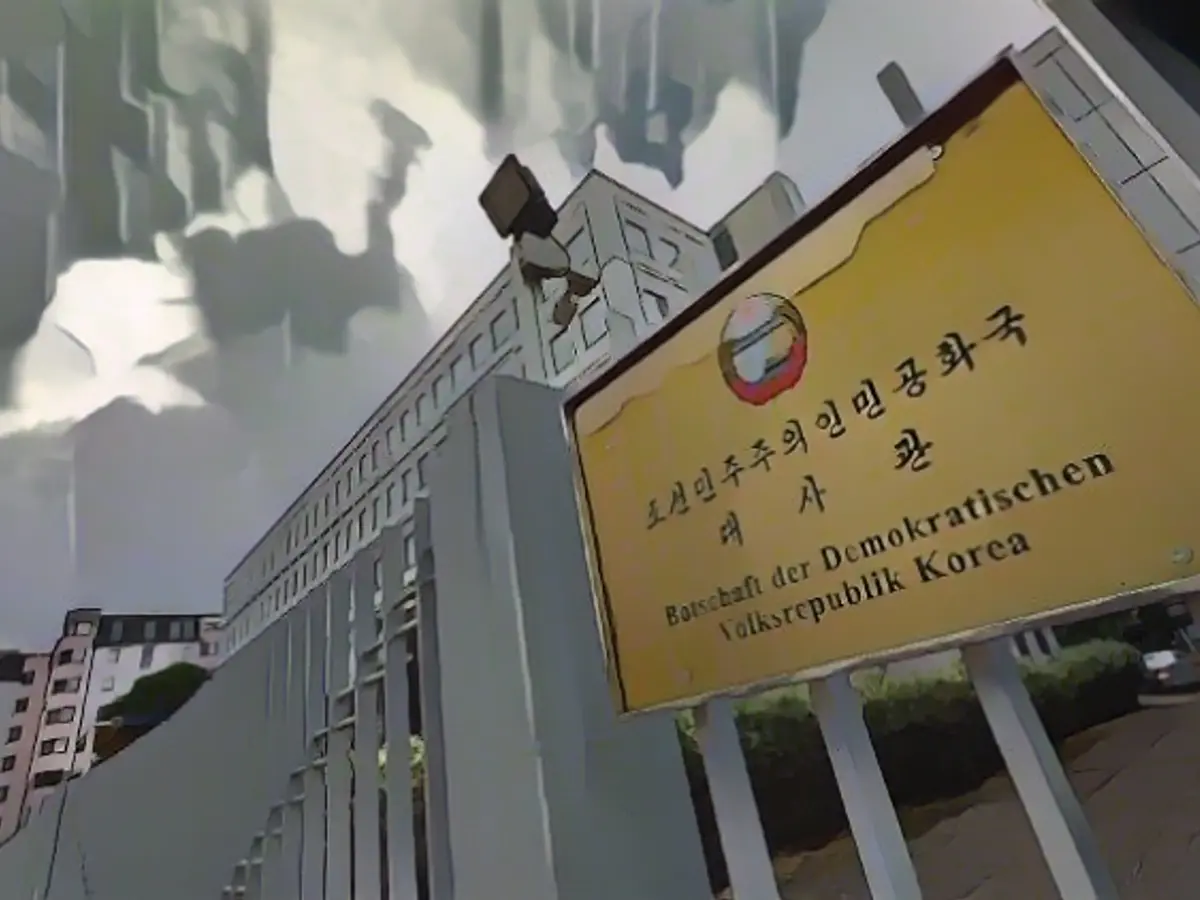North Korea closes a dozen embassies
North Korea operates more than 50 embassies around the world. Several foreign missions are closed. The regime is selling it as a reorientation, but the country is actually running out of money. The good news for Pyongyang is that its most important partners are China and Russia anyway.
North Korea has its own embassies in 53 countries - unsurprisingly in China and Russia, important partner countries of North Korea, as well as in Syria, Cuba and Iran. However, North Korea also has a representative office in Germany. For years, the regime also ran a hostel on the embassy grounds in Berlin-Mitte. A year later - in 2018 - the lights were switched off. Two years later, the Berlin Administrative Court dismissed an appeal by the operators.
The embassy as such still exists in Berlin, but many others around the world are now being closed. North Korea wants to close up to twelve embassies around the world. That would be almost one in four representative offices abroad - the regime is even closing the embassy doors of good allies from the past, for example in Angola and Uganda.
The regime is selling the exodus as a "process of change". The aim is to make "diplomatic capacities more efficient", the North Korean Foreign Ministry announced at the beginning of this month.
In reality, however, massive financial problems appear to be the cause. The foreign embassies are not paid directly from Pyongyang, but are financed by foreign currency transactions in the construction and IT sectors, as well as by smuggling, money laundering and other illegal transactions. Western sanctions are making it increasingly difficult for the regime of leader Kim Jong Un to stay financially afloat. As a result, "foreign exchange transactions have come to a standstill", claims the South Korean Ministry of Defense.
"Foreign policy upheaval"
In an exchange of letters with the Communist Party of Spain, Pyongyang indirectly confirmed the financial difficulties. According to the regime, sanctions imposed by the EU and the USA are the reason for the closure of the North Korean representation in Madrid.
Otherwise, the wave of North Korean closures is said to have mainly affected embassies in Africa and the representative office in Hong Kong. This was reported by the Japanese newspaper "Yomiuri Shimbun", among others. The platform "NK Pro", which specializes in North Korea, expects "one of the country's biggest foreign policy upheavals in decades".
Angola is a good example of the impact sanctions can have. In 2017, the government in Luanda stopped working with a North Korean construction company and the construction workers were sent back home.
Angola's government apparently wanted to prevent the sanctions from being broken. If it had continued to work closely with North Korea anyway, it might have been isolated internationally.
North Korea itself plays down the closures. It is the right of every sovereign country to reassess its diplomatic priorities. The North Korean Foreign Ministry announced that the closure of the embassies served to "promote national interests in foreign relations".
In plain language, this presumably means that North Korea wants to rely on its few major allies. The Kim regime will strengthen its so-called "new Cold War diplomacy", expects South Korean political scientist Cho Han-Bum in the Guardian. North Korea is focusing on further intensifying cooperation with countries such as China, Russia, Syria, Iran and Cuba.
Meetings with Putin, business with Beijing
North Korea has recently put out feelers to Moscow in particular. In September, Head of State Kim met personally with Russian President Vladimir Putin at the Vostochny spaceport. They agreed that North Korea would supply the Russians with ammunition for the war in Ukraine and that the Kremlin would help the Kim dictatorship's space program in return.
Relations with China have also been strengthened in recent months. "The moment the Chinese decide that they will no longer run away from a conflict with the USA, it would actually be enough for North Korea if the Chinese opened up their market and financial system to them," said North Korea expert Rüdiger Frank from the University of Vienna on the ntv podcast "Wieder was gelernt" three years ago. "The country is small enough. And China is big enough to supply everything the North Koreans need in terms of demand and imports for an economic upturn."
Pyongyang's strategy is to further improve economic relations with Beijing and Moscow in order to survive in this way. The global situation can help Kim Jong Un in this endeavor. Because Russia in particular has lost important Western trading partners as a result of the war in Ukraine, the importance of remaining partner countries such as North Korea automatically increases.
Despite the closure of several embassies, North Korea maintains strong diplomatic ties with its key allies, such as China and Russia. For instance, North Korea's Head of State Kim Jong Un recently met with Russian President Vladimir Putin, agreeing on a supply of ammunition for Ukraine in exchange for aid to North Korea's space program.
In light of the financial difficulties North Korea is facing due to international sanctions, reliance on its major allies, including China and Russia, has become even more crucial for the Kim regime. This strategic move is expected to strengthen North Korea's "new Cold War diplomacy" and further intensify its cooperation with countries like Syria, Iran, and Cuba.
Source: www.ntv.de








